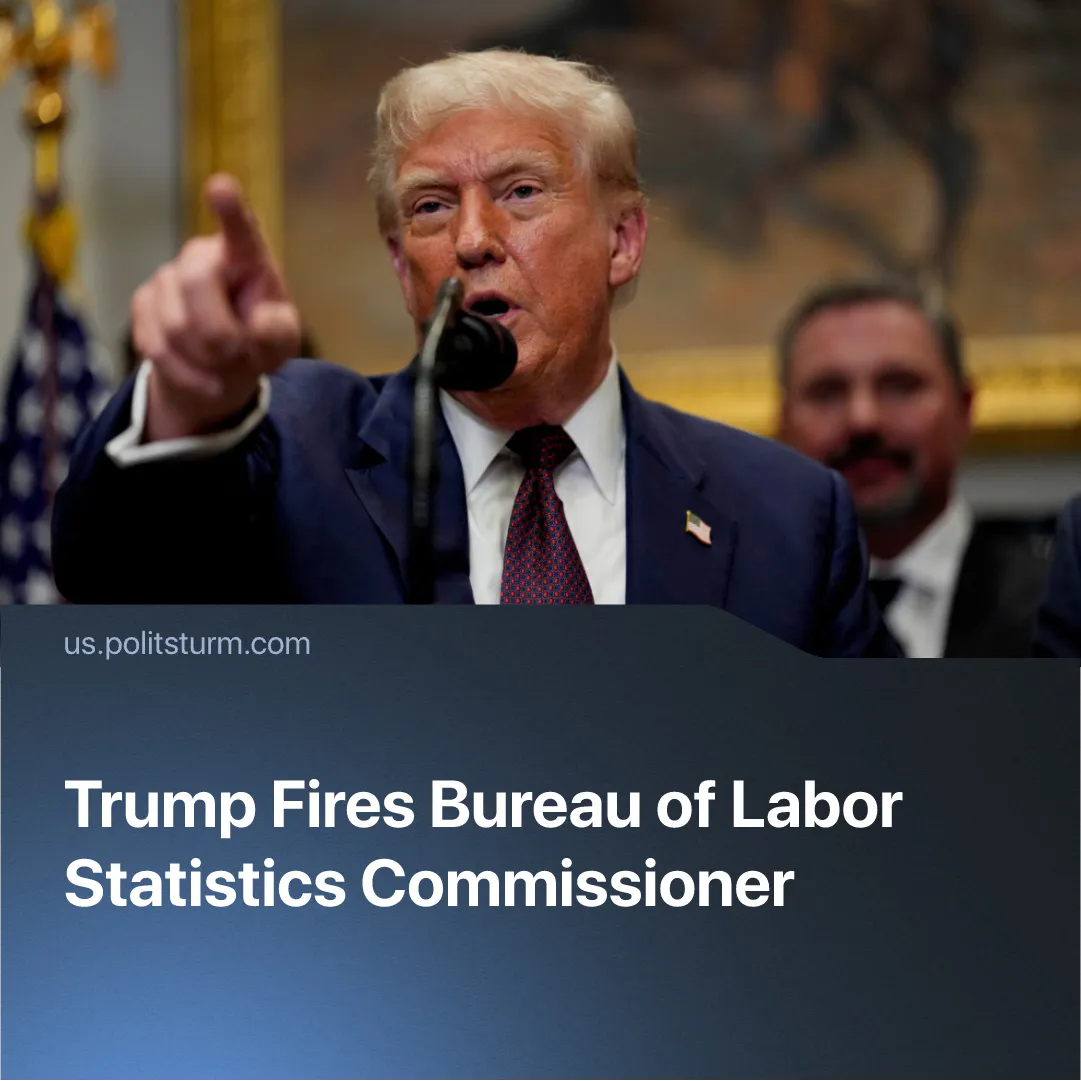Trump claimed the US economy is “booming” while firing the chief economic data official.
Details. The July 2025 Employment Situation Report by the Bureau of Labor Statistics (BLS) revealed a significant downward revision of previous job growth data, stating that the US economy added only 95,000 jobs, far below projections. Job growth figures from May and June were also revised down by a combined 110,000 jobs.
▶ In response, President Trump fired BLS Commissioner Erika McEntarfer, claiming she had “rigged” the numbers.
▶ Markets reacted with increased volatility following this dismissal. Analysts cited rising uncertainty around data integrity, with investor confidence shaken by political interference in economic reporting.
Context. On August 1, Trump announced sweeping new tariffs on 69 countries, triggering a sharp market sell-off. The Dow fell over 500 points, with broader drops across stocks, bonds, and the dollar. The reaction reflected growing investor concern over the instability caused by Trump’s trade policy.
▶ The US has recently secured several favourable trade deals with major economies, such as Japan and the EU, using tariff threats to force concessions, including greater market access for American goods.
Important to Know. Trump presents the tariffs as a way to protect American jobs from foreign competition and revive manufacturing. Still, in reality, they are aimed at securing US control over key global supply chains and drawing markets closer to its influence in preparation for inter-imperialist war. This is reinforced by the new budget’s higher debt ceiling, which enables greatly expanded military spending.
▶ Despite securing tariff concessions abroad, the US economy faces deepening instability at home, with layoffs, market turbulence, and weakening demand reflecting the structural crisis of overproduction and falling profitability in capitalism.
▶ By firing officials like Erika McEntarfer, Trump aids a narrative that economic setbacks are caused by “rigged” data rather than structural crises. Whether he believes this or not is irrelevant — it functions the same way as his tariff rhetoric, misleading the public and obscuring the real aims. While some investors express concern over political interference, the US capitalist class as a whole accepts the short-term instability as the price of reasserting US dominance and preparing for war.


